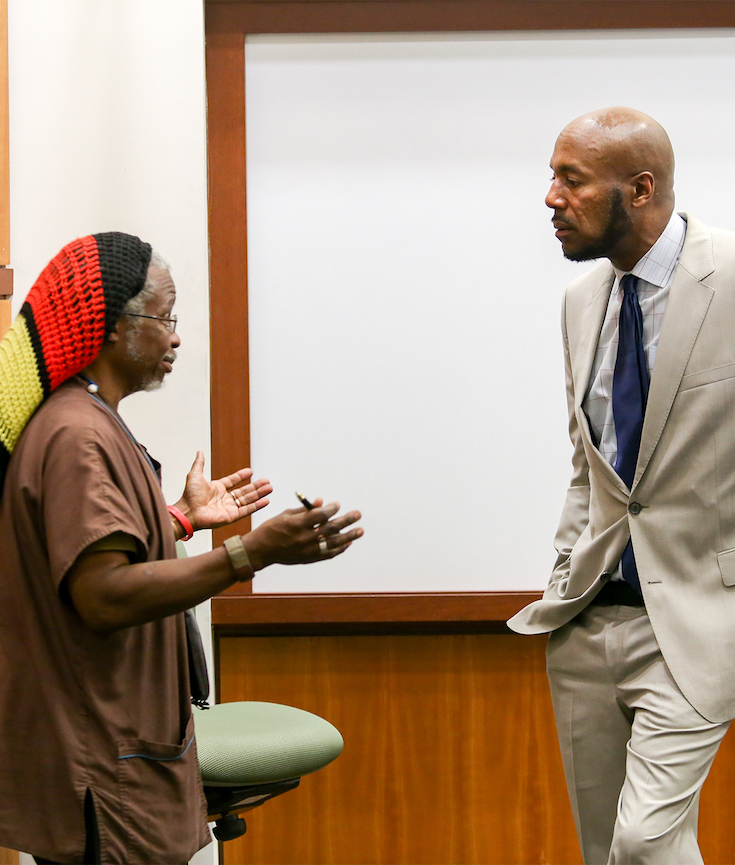[dropcap]Paul[/dropcap] Butler, author of the new book Chokehold: Policing Black Men, argues the US criminal justice system is institutionally constructed to control African American men. But, he says, that is merely one facet of a pervasive “chokehold” over black men that can be observed in numerous social and political arenas.
The work has been described by the New York Times as “the most readable and provocative account of the war on drugs since Michelle Alexander’s The New Jim Crow”.
Here, Butler answers questions on some of the book’s main arguments and grapples with how its series of radical solutions stands in stark contrast to the agenda of Donald Trump.
[mc4wp_form id=”6042″]



MASS INCARCERATION | UNITED STATES
Mass incarceration is a term used by historians and sociologists to describe the substantial increase in the number of incarcerated people in the United States’ prisons over the past forty years. The prison population of the United States dwarfs the prison populations of every other developed country in the world, including countries thought to be repressive like China and Russia. Since 1985, the number of people imprisoned in the United States has risen drastically. “Although the United States makes up only 5% of the world’s population, it now accounts for one-quarter of the world’s prisoners”, most of whom are minorities, teenagers, the elderly, and women. Michelle Alexander describes mass incarceration as “the criminal justice system but also to the larger web of laws, rules, policies, and customs that control those labeled criminals both in and out of prison.” The 13th amendment rendered slavery illegal with the exception of prisoners. After slavery, many laws were passed in order to target the black populations in America, such as the Jim Crow laws, which were one of the many tools used that allowed for the marginalization of black people and led to mass incarceration. For example, a grant was filed in 1995 that offered a monetary reward to prisons that increased their prison population. Gilda Graff theorizes that this has become the case because the people with the privilege and power to stop it are ashamed of slavery. Whether they are ashamed of profiting from slavery or coming from slaves, the shame obfuscates the problem. (Wikipedia).


You must be logged in to post a comment.